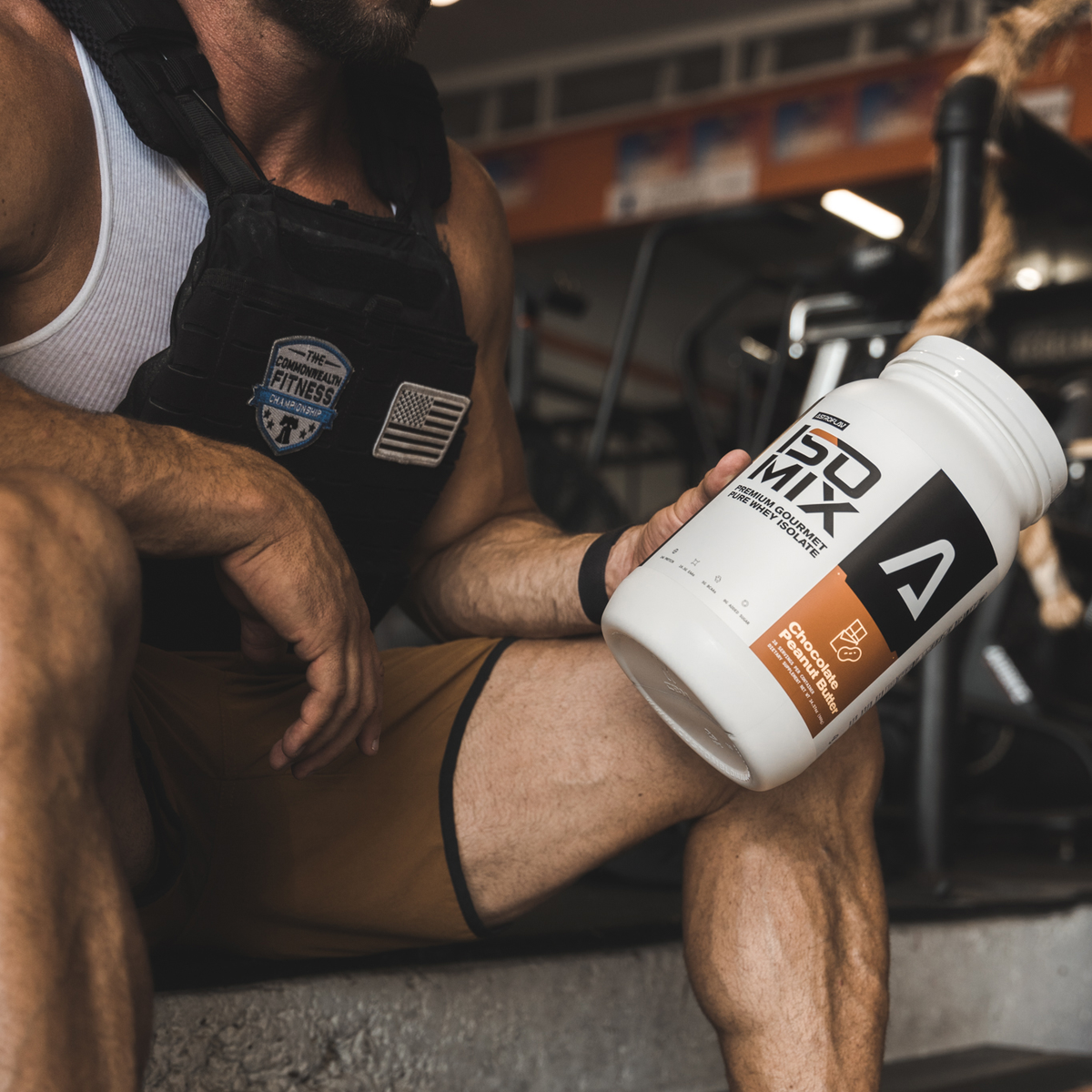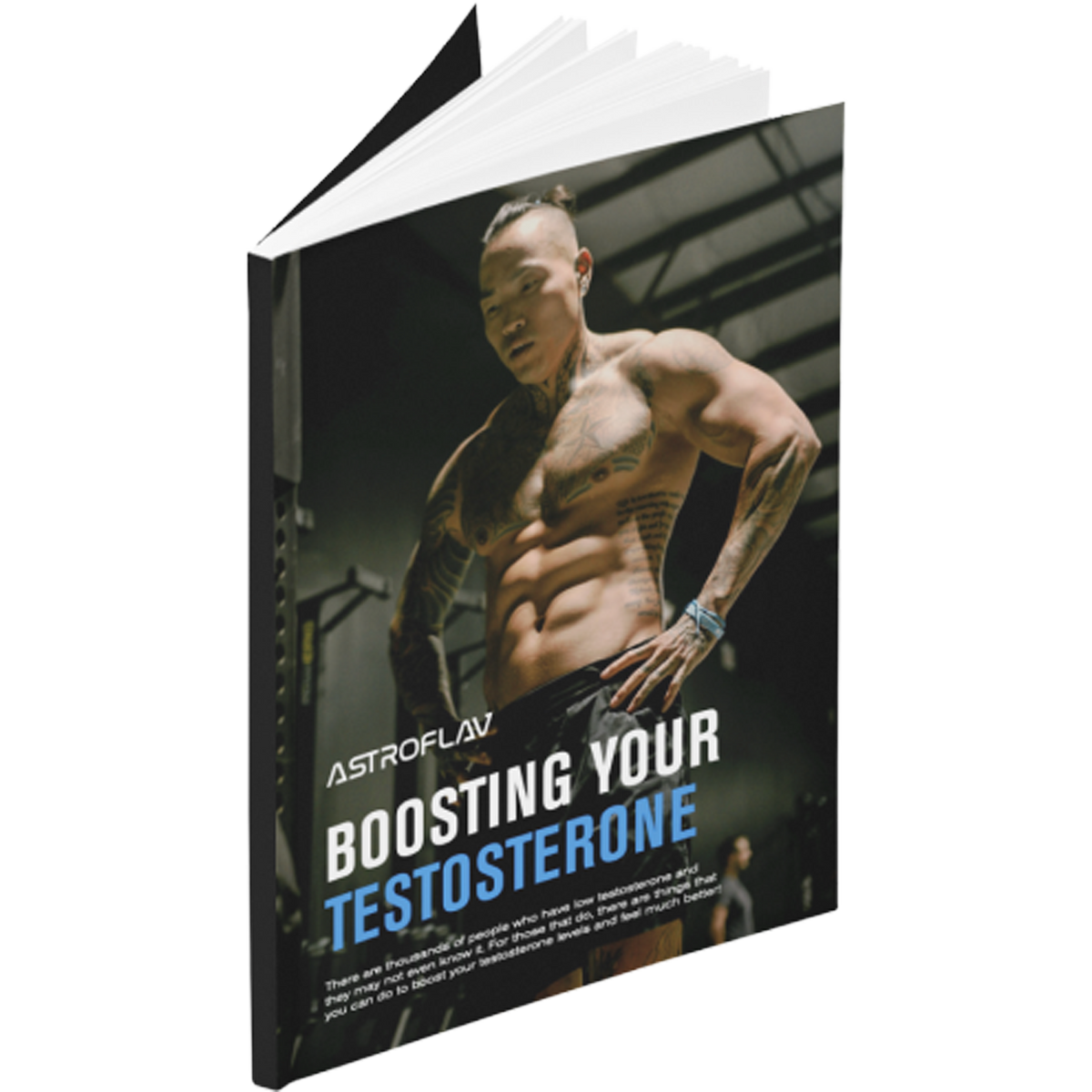
How Creatine Enhances Athletic Performance
Did you know that creatine supplements stand out as one of the most researched and effective supplements for enhancing muscle mass & strength? If you're looking to increase your strength and put on lean muscle mass, you've come to the right place! This article will explore what creatine is, how a creatine supplement can enhance muscle mass and strength, & common misconceptions about this useful supplement!
What is Creatine?
Creatine is a naturally occurring compound found primarily in the muscle tissues. It serves as a vital energy source during short-duration, high-intensity activities like weightlifting and sprinting. Creatine is synthesized in the body from amino acids, primarily in the liver, kidneys, and pancreas. However, it can also be obtained through dietary sources such as meat and fish. Once consumed, creatine is converted into phosphocreatine, which plays a key role in the regeneration of adenosine triphosphate (ATP), the primary energy molecule used by cells.
Creatine monohydrate is a supplemental form of creatine that has gained widespread popularity among athletes and bodybuilders. It is the most researched and commonly used form of creatine supplementation. Creatine monohydrate is highly soluble in water and is typically consumed in powdered form. When taken as a supplement, creatine monohydrate increases the body's stores of phosphocreatine, leading to enhanced ATP production during high-intensity exercise.
By increasing the availability of ATP, creatine helps to improve strength, power output, and muscle endurance. This can lead to greater gains in muscle mass and improved performance in activities requiring explosive movements. Additionally, creatine has been shown to support muscle recovery and reduce exercise-induced muscle damage, allowing individuals to train harder and more frequently.
Overall, creatine supplementation, particularly in the form of creatine monohydrate powder, is a safe and effective way to enhance athletic performance and support muscle growth and recovery. Read below to learn why creatine gummies may not be the most effective form of this specific supplement!
Science Behind Creatine Monohydrate
Creatine, a naturally occurring compound found in the body, plays a vital role in energy metabolism, particularly during short bursts of high-intensity exercise. When consumed or produced internally, creatine combines with phosphate molecules to form phosphocreatine, a high-energy molecule stored in muscles.
During activities like weightlifting or sprinting, phosphocreatine rapidly donates its phosphate group to adenosine diphosphate (ADP), regenerating it into adenosine triphosphate (ATP), the primary energy source for muscle contractions. This replenishment of ATP allows muscles to sustain short bursts of intense activity, leading to enhanced athletic performance.
Creatine monohydrate, the most common form of creatine supplementation, has been extensively studied and shown to increase muscle strength, power, and overall performance, making it a popular choice among athletes and bodybuilders seeking to maximize their training gains.

Creatine & Athletic Performance
Creatine is a well-researched supplement known for its ability to enhance athletic performance, particularly in activities requiring short bursts of intense effort. When ingested, creatine is converted to phosphocreatine, which serves as a rapid source of energy for muscle contractions. This increased availability of phosphocreatine allows muscles to regenerate adenosine triphosphate (ATP) more quickly during high-intensity exercise, providing the energy needed for explosive movements like sprinting or weightlifting.
Consequently, creatine supplementation has been shown to improve strength, power, and overall performance in athletes across various sports. Studies such as "Creatine supplementation with specific view to exercise/sports performance: " by Kreider RB have consistently demonstrated the positive effects of creatine on athletic performance, making it a popular choice among athletes and fitness enthusiasts striving to maximize their training gains.
In addition to enhancing immediate energy availability, creatine supplementation has been found to increase muscle mass and promote greater gains in strength and power over time. Research suggests that creatine may also help improve muscle recovery by reducing exercise-induced inflammation and oxidative stress.
Moreover, creatine has been shown to benefit athletes engaged in high-intensity training, such as sprinting, weightlifting, and team sports, by delaying fatigue and allowing for greater training volume.
Overall, creatine's multifaceted effects on energy metabolism, muscle function, and recovery make it a valuable tool for athletes looking to optimize their performance and achieve their fitness goals.
Creatine & Strength Improvement
Creatine supplementation has gained significant attention for its ability to enhance strength and power among athletes. By increasing the body's stores of phosphocreatine, creatine supplementation allows for more rapid ATP regeneration during high-intensity exercise, particularly during short bursts of activity.
This translates to improved performance in strength-based activities like weightlifting, where athletes may experience enhanced muscle contractions and greater power output. Additionally, creatine supplementation has been shown to promote greater gains in muscle mass over time, further contributing to improvements in strength and overall athletic performance.
Studies like "The effects of creatine supplementation on muscular performance and body composition responses to short-term resistance training overreaching" by Kerksick CM et al. (2006) and "Creatine supplementation enhances muscular performance during high-intensity resistance exercise" by Volek JS et al. (1997) have proven support for the efficacy of creatine in enhancing strength and power, making it a staple supplement in the training regimens of athletes and weightlifters alike.
Is Creatine Safe to Use?
Of course when searching a new supplement it is important to make sure it's not only effective but also safe to use. The good news is that creatine supplementation in its purest form is considered safe for use due to several factors.
First, pure creatine monohydrate is (or should be) free from additives, fillers, and artificial ingredients, reducing the risk of adverse reactions or side effects. Additionally, reputable manufacturers follow precise quality control standards and conduct thorough testing to ensure the purity and potency of their creatine products. This purity allows for precise dosing, enabling individuals to tailor their supplementation regimen according to their specific needs and preferences.
As a result, pure creatine monohydrate powder remains a popular and trusted choice among athletes and fitness enthusiasts seeking to enhance their performance safely and effectively.
AstroFlav's Creatine Monohydrate 500 provides 5mg of creatine per serving and is 100% safe to use daily. Click the link for access to our purest form of creatine monohydrate!

Common Myths of Taking Creatine:
It's safe to say that creatine monohydrate has been recently accepted as a safe and useful ergogenic aid; however, there are several claiming myths about creatine supplementation that you may have heard or seen before. Below is a list of a few common myths 'debunked'.
-
MYTH: Creatine supplementation causes excess weight gain and puffiness.
-
FACT: Creatine helps provide hydration to cells in the muscle; however, long-term creatine studies show no signifiant changes in total body water weight.
-
MYTH: Creatine supplementation causes renal distress.
-
FACT: Creatine supplementation does not change kidney function in healthy individuals.
-
MYTH: Cramping, dehydration, and altered electrolyte status is caused by creatine supplementation.
-
FACT: There is no research that shows that creatine causes cramping and dehydration. In fact, some studies of creatine intake may help reduce the risk of some of these conditions.
-
MYTH: There are no studies of long-term effects of taking creatine.
-
FACT: Creatine has been studied for many years, proving its safety and effectiveness of supplementation.
How to Take a Creatine Supplement
Recent studies show that supplementing with 3 to 5 grams of creatine monohydrate daily can improve strength, power, and muscle growth.
To see faster results, some athletes "creatine load" by taking around 20 grams per day for the first 5-7 days. However, research shows that this isn't necessary and can get similar results by taking smaller doses more frequently.
When to take creatine:
Creatine can be used every day (off days too)!
The goal is to saturate your muscles with creatine so that when it comes time to train, your muscles are ready to give your body more fuel!You can accomplish this by consuming one scoop (5 grams) of our creatine every day.
Remember, creatine doesn't have an acute benefit like caffeine, so you can take it at any time during the day. The goal is to take it consistently!
The Bottom Line:
Creatine, a naturally occurring compound in the body, is widely recognized for its ability to enhance athletic performance and muscle growth. When consumed or produced internally, creatine transforms into phosphocreatine, a crucial energy source for short bursts of intense exercise.
Creatine supplementation, particularly in its purest form of monohydrate powder, has been extensively researched and deemed safe for use when coming from a high-quality and trusted supplement company. Pure creatine monohydrate powder offers a convenient and effective means of supplementation, allowing for precise dosing and customization according to individual needs.
With its proven efficacy in improving strength, power, and overall athletic performance, pure creatine powder remains a trusted choice for athletes and fitness enthusiasts striving to maximize their training gains safely and reliably!
RESOURCES
-
Escalante, G., Stevenson, S.W., Barakat, C. et al. Peak week recommendations for bodybuilders: an evidence based approach. BMC Sports Sci Med Rehabil 13, 68 (2021). https://doi.org/10.1186/s13102-021-00296-y
-
Buford, T. W., Kreider, R. B., Stout, J. R., Greenwood, M., Campbell, B., Spano, M., Ziegenfuss, T., Lopez, H., Landis, J., & Antonio, J. (2007). International Society of Sports Nutrition position stand: creatine supplementation and exercise. Journal of the International Society of Sports Nutrition, 4, 6. https://doi.org/10.1186/1550-2783-4-6
-
Nissen, S. L., & Sharp, R. L. (2003). Effect of dietary supplements on lean mass and strength gains with resistance exercise: a meta-analysis. Journal of applied physiology (Bethesda, Md. : 1985), 94(2), 651–659. https://doi.org/10.1152/japplphysiol.00755.2002
-
https://www.healthline.com/nutrition/creatine-for-muscle-and-strength
-
Volek, J. S., Duncan, N. D., Mazzetti, S. A., Staron, R. S., Putukian, M., Gómez, A. L., ... & Kraemer, W. J. (1997). Creatine supplementation enhances muscular performance during high-intensity resistance exercise. Journal of the American Dietetic Association, 97(7), 765-770. https://doi.org/10.1016/S0002-8223(97)00189-2
-
Kreider, R. B., Kalman, D. S., Antonio, J., Ziegenfuss, T. N., Wildman, R., Collins, R., ... & Lopez, H. L. (2012). International Society of Sports Nutrition position stand: safety and efficacy of creatine supplementation in exercise, sport, and medicine. Journal of the International Society of Sports Nutrition, 9(1), 33. https://doi.org/10.1186/1550-2783-9-33



